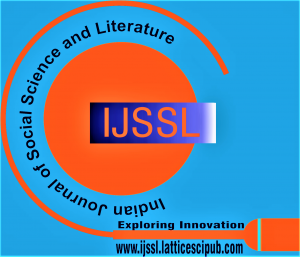![]()
The Wesean Student Federation and the Unity of Northeast India: Examining the Role of Student Organizations in Fostering Cross-Border Solidarity in Wesea
John Haokip
John Haokip, Department of Political Science, Mizoram University, Aizawl (Mizoram), India.
Manuscript received on 13 August 2024 | First Revised Manuscript received on 20 August 2024 | Second Revised Manuscript received on 28 February 2025 | Manuscript Accepted on 15 March 2025 | Manuscript published on 30 March 2025 | PP: 26-32 | Volume-4 Issue-3, March 2025 | Retrieval Number: 100.1/ijssl.A114404010924 | DOI: 10.54105/ijssl.A1144.04030325
Open Access | Ethics and Policies | Cite | Zenodo | OJS | Indexing and Abstracting
© The Authors. Published by Lattice Science Publication (LSP). This is an open-access article under the CC-BY-NC-ND license (http://creativecommons.org/licenses/by-nc-nd/4.0/)
Abstract: This paper examines the formation and role of the Wesean Student Federation (WSF) within the broader context of the Northeast Indian region, often referred to as Wesea. The region, which includes parts of Northeast India, Bangladesh, and Myanmar, is characterised by its diverse indigenous populations, unique cultural heritage, and a history of political marginalisation. The study explores how the WSF has emerged as a unifying force for Wesean students, seeking to bridge ethnic divides and foster cross-border solidarity among the indigenous communities of Wesea. By analysing the WSF’s efforts to address issues such as the Citizenship Amendment Act (CAA) and the abolition of the Free Movement Regime (FMR), this paper sheds light on the federation’s role in advocating for indigenous rights, cultural preservation, and political sovereignty in a region marked by complex historical and geopolitical dynamics.
Keywords: WSF, Indian Region, Cultural Heritage, Political Marginalisation.
Scope of the Article: Political
